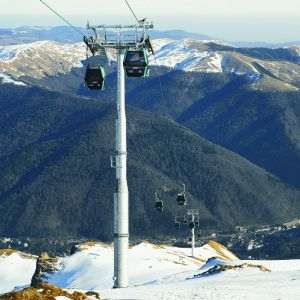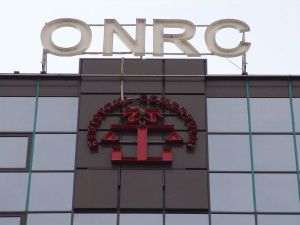• "The free market is not a political desideratum, but a law of nature"
• "The number of energy suppliers will increase"
The current concern in the electricity sector is for all consumers to enter the competitive market, and the most important thing is that they "escape captivity," according to Niculae Havrileţ, secretary of state in the Ministry of Energy.
He said: "The special architecture of the energy and gas markets, in which a number of dedicated, default suppliers have a portfolio as a result of prior policies, have captured millions of consumers. Perhaps, just like a "gas release" has been imposed upon the gas market, perhaps a "customer release" policy on the electricity would have been necessary on the electricity market as well, freeing consumers first and then allowing them to choose their supplier. That is impossible to do now, the only release we can do is that of captive consumers in the area of universal service.
If they remain in the area of universal service, they will remain captive, but if they change their situation and enter the competitive area, they break free. They remain default consumers, but once they become the consumer in the competitive market, their appetite to check out the prices offered by other suppliers will automatically increase. We must make every effort to get all consumers out of the captivity of universal service and to choose a competitive offer".
According to Mr. Havrileţ, the National Energy Regulatory Authority (ANRE) should not be seen as the "go-to culprit" in the context of the current discussions related to the liberalization of the electricity market, because it had to "fix" what Emergency Ordinance no. 114/2018, which regulated prices again, in 2019, broke. "The ANRE had to fix what GEO 114 introduced abruptly, in 2019. The ANRE intervened at a time when Ordinance 114 was repealed and liberalization imposed was even more strongly imposed by the appearance of EU Regulation 943/2019 which provided for the free formation of prices, according to the demand and supply", Mr. Havrileţ said.
• "Ordinance 114 broke a functioning, liquid and transparent market"
Niculae Havrileţ recalls that, in 2018, electricity for household consumers was being traded on the competitive market without that trading creating turbulence or discussions, like is happening now, and the whole current situation was caused by the appearance of Ordinance 114/2018, which brought back regulatory measures for household consumers. "This ordinance had no justification; it broke a functioning, liquid and transparent market, it entered the free market very hard."
• "Who would want to invest in a production capacity, knowing that the price for the sale of electricity is regulated by the state?"
The free market is not a political desideratum, but a law of nature, according to Mr. Niculae Havrileţ, who points out that without the liberalization of the markets in any sector, we will not see any interest in investments from companies.
Niculae Havrileţ reminds that, in 2018, electricity for household consumers was traded on the competitive market without this creating turbulence or discussions, as is happening now, and the whole current situation was generated by the appearance of Ordinance 114/2018, which brought back regulatory measures for household consumers. "This ordinance had no justification; it shattered a functioning, liquid and transparent market, it entered the free market very hard".
He says: "Who would want to invest in a capacity of energy production, knowing that the price they get from the sale of the electricity is regulated by the state, without ensuring the right to recoup their investments? Just like the Constitution, the Romanian economy is free, it is a market-based. That thing is overwhelmingly exemplified in the functioning of the energy markets in general. If you don't have a free energy market, which doesn't work correctly, you are not going to get investments. If you don't have investments, what happens is exactly what happens in that moment: there is no interest in investing in new capacities for the production of electricity. Then, at the moment when the market requests a consumption greater than 8500 MW, we will have problems in ensuring the adequacy of the national energy system".
• "We need to beat the traumas of excessive centralization"
Niculae Havrileţ expects that new players will appear in the on the market for energy suppliers: "I encourage them to enter the market because that is the future, of an increase in the number of suppliers. It is hard enough for them to enter the market because its architecture is one that favors the big suppliers. It is a historic problem, which arises from the concentration of the economy in the communist period - an excessive centralization which has persisted. We are going to beat, within a reasonable time frame, these traumas which come from overcentralization. The number of suppliers will increase, as we can see on the price comparison tools, both with the ANRE, and with the Competition Council. They have very good prices, there is a large supply, but the problem that some suppliers have is that they cannot extend these prices to a large number of consumers, for now".
Mr. Havrileţ also says that, in time, towards the end of the year, the new suppliers will conquer "one portfolio after another", and then, after 100,000, 200,000, 300,000 customers, they will become very important.
















































